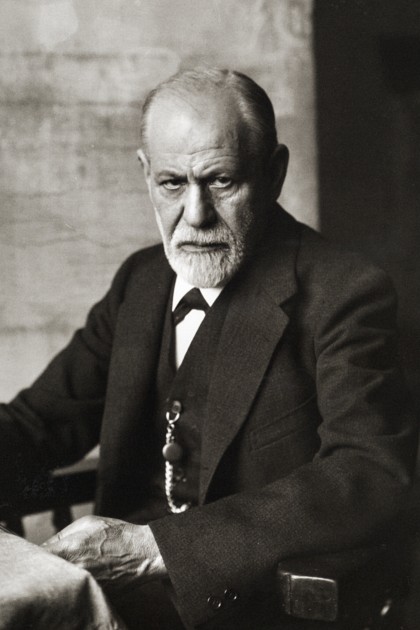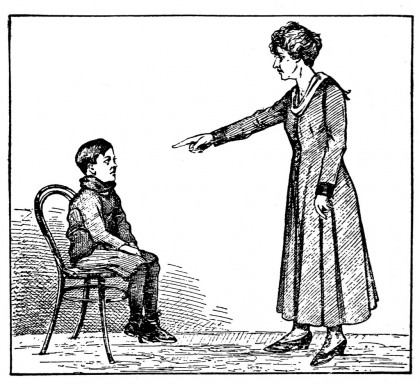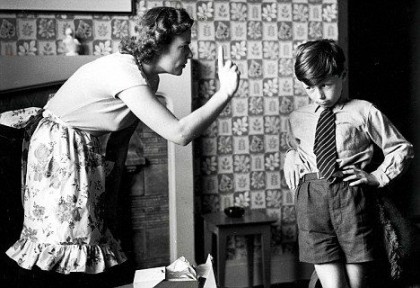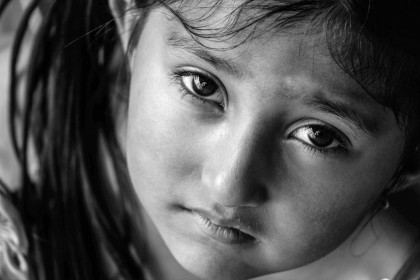Gaslighting and its Near Relations
Devra Torres | Mar 29, 2017 | 3 cmts
Are you a gaslighter? Of course not, right?
You would expect that gaslighting--"a form of manipulation that seeks to sow seeds of doubt in a targeted individual or members of a group, hoping to make targets question their own memory, perception and sanity"--would be a rarity, practiced only by the few malevolent bullies. How many of us, after all, would take on the elaborate project of tricking people into questioning their own sanity?

I'd guess that in its full-blown form, it's exceedingly rare. I remember once when the girls in our college dorm hatched an elaborate plot to convince our friend Heather that she had napped straight through till the evening of the following day. When she woke up after an hour or two one Thursday, she found us traipsing around in towels and curlers, pretending to prepare for Friday night. The whole dorm was in on it, and it almost worked.
That was just for fun.
But there are other, much more common scenarios. Trying to manipulate other people's perceptions isn't unusual at all, unfortunately. How firm a hold, after all, do most of us have on our own memories or perceptions? Especially the ones about how someone has treated us. These kind are exceedingly susceptible to twisting--because of fear, jealousy, wishful thinking, defensiveness, or projection.

And it can be tempting to gaslight your children--or at least to seize control of their perceptions of what's normal, acceptable, and possible. All the tokens of respect that we know we're supposed to offer people in general can seem out of place when it comes to your own children. With grownups, it's easier to realize we don't know all that's going on in their own hearts. We don't pry; we don't assume; we don't manipulate. Or we do, but at least we realize we're not supposed to.
But with children...well, we have stewardship of their upbringing. Because they're more transparent than adults, we can be tempted to assume that we're seeing all there is to see. We've been children, after all, and they've never been adults. We've experienced being two, or five, or thirteen. They've never been twenty, or thirty or (yikes!) fifty-two. We make an exception to our nonjudgmentalism and easily grant ourselves permission not only to judge their motives and their hearts, but to try to improve them.

(Although if you look back to your own childhood, chances are you remember the frustration of dealing with some grownup who was both certain she saw into your heart and entirely mistaken. And because children have smaller and less sophisticated vocabularies, they are often unable to articulate just where the grownup is getting it wrong. And that's assuming an unusually receptive grownup, one with the humility to realize she might be getting it wrong and the patience to listen to a child's explanations).

Manipulation of children for their own good, or just for the sheer convenience of a grownup, used to be more blatant, and more socially acceptable. I remember my father telling how his beleaguered mother used to pick up the phone and say to the dial tone: "Hello? Is this the man who comes to take bad children away? Well, I have a bad little boy here..." My father would panic and mend his ways, at least for ten minutes or so. Apparently these tactics weren't uncommon in Grandma's day.

These days, we look askance at them, and rightly so. But a popular childrearing series recommends what may be a more insidious form of manipulation. When a child commits some infraction, the authors advise, the parent should say, very quietly and calmly, something like, "Oh, I'm sorry you did that. We'll talk about the consequences later. Try not to worry"--retaining a veneer of respectful courtesy, but with all the benefits of a cowed and anxiety-ridden culprit.
Full-blown gaslighting may be rare. But the temptation to usurp someone else's perceptions of reality is anything but.

Comments (3)
Mary
Mar 29, 2017 6:48pm
I like that we are not to assume we know our children's hearts and always what is best for them. Even though many times I have instinctively "known" what is going on in their heads, I have come to wait them out on revealing it, or to gently ask if this is the case. As far as the childrearing advice you mention at the end of the article, there is more to it, than trying to scare them into not doing it. At least at the Love and Logic course my husband and I went to. First, telling them we will talk about the consequences later gives you time to calm down and think of appropriate, not knee-jerk, consequences, second, if you involve them in the consequences, it gives them time to think about what would help them not to do the infraction again. The class we were in really emphasized that we are to show them empathy, and to help them figure out how to solve problems. If there was anything about causing anxiety in the child by delaying the consequence, at least in our class, it was presented as a joke only.
Devra Torres
Mar 30, 2017 10:20pm
Oh, I'm happy to hear that! I didn't go to the classes, just read the book, or misread it.
Katie van Schaijik
Apr 11, 2017 10:33am
I'm glad you brought this up, Devra. "Gaslighting" has become an important term for me in trying to interpret and process certain painful experiences. I agree with you that the full-blown kind, wherein the perpetrator is deliberately and maliciously trying to destroy another person's sanity, is pretty rare.
But another kind is depressingly commonplace in my experience. It's a kind wherein the perpetrator is afflicted with a measure of denial, deep insecurity, a lack of self-awareness, or an ego-centrism that can't cope with an another person's internal reality. A different opinion or perspective feels threatening and therefore has to be denied or repudiated.
For me, recognizing how widespread a problem it has become is another reason for rejoicing over the personalist emphasis of the post-conciliar popes.
We really have to learn to take subjectivity more seriously.